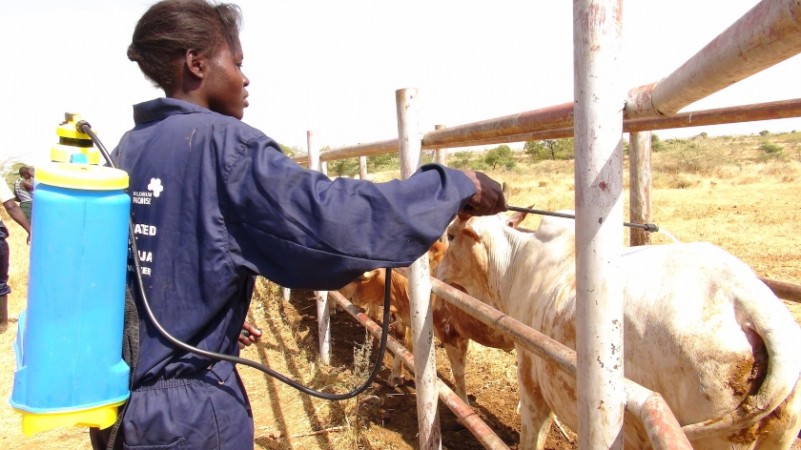
In a monumental stride towards combating tick infestations in African cattle, Uganda's National Agricultural Research Organization (NARO) has joined hands with Spain's Health and Biotechnology Institute for Game and Wildlife Research (IREC, CSIC-UCLM-JCCM). Led by Professor Jose de la Fuente, this collaboration has birthed a groundbreaking vaccine tailored to target specific tick species plaguing Uganda's cattle population.
Over the past decade, the joint effort has resulted in the development of vaccines aimed at tackling the brown ear tick (Rhipicephalus appendiculatus), African blue tick (Rhipicephalus decoloratus), and tropical bont tick (Amblyomma variegatum). Locally known as Engoha, Entujo, and Embarabara, respectively, these ticks have posed significant challenges to cattle farmers across sub-Saharan Africa, leading to staggering annual losses exceeding USD 1.1 billion due to tick-borne diseases.
Frank Mugabi, spokesperson for NARO, highlighted the pivotal role of this breakthrough achievement in alleviating the financial burdens faced by farmers. By offering a sustainable solution to mitigate losses associated with tick-borne diseases, the vaccine aims to revolutionize cattle farming practices in the region.
The introduction of anti-tick vaccines heralds a paradigm shift in tick control strategies, providing a cost-effective and environmentally sustainable alternative to traditional acaricides. Unlike previous vaccines that targeted tick species prevalent in other regions, this collaboration pioneers a solution tailored to Africa's specific challenges.
Furthermore, the holistic approach to tick control, combining vaccination with judicious acaricide application, promises a comprehensive solution. As vaccination coverage increases and animals develop immunity, there is a simultaneous reduction in tick infestations and the incidence of tick-borne diseases, leading to decreased reliance on acaricides over time.
This milestone underscores the significance of international collaboration and scientific innovation in addressing pressing agricultural challenges. With the successful development of anti-tick vaccines, Uganda is poised to transform cattle farming practices, fostering resilience and sustainability within the agricultural sector.
Stakeholders are urged to rally behind the widespread adoption of anti-tick vaccines, ushering in a new era of prosperity for cattle farmers across Africa.
Article by Jed Mwangi
Photo/Google

Comment